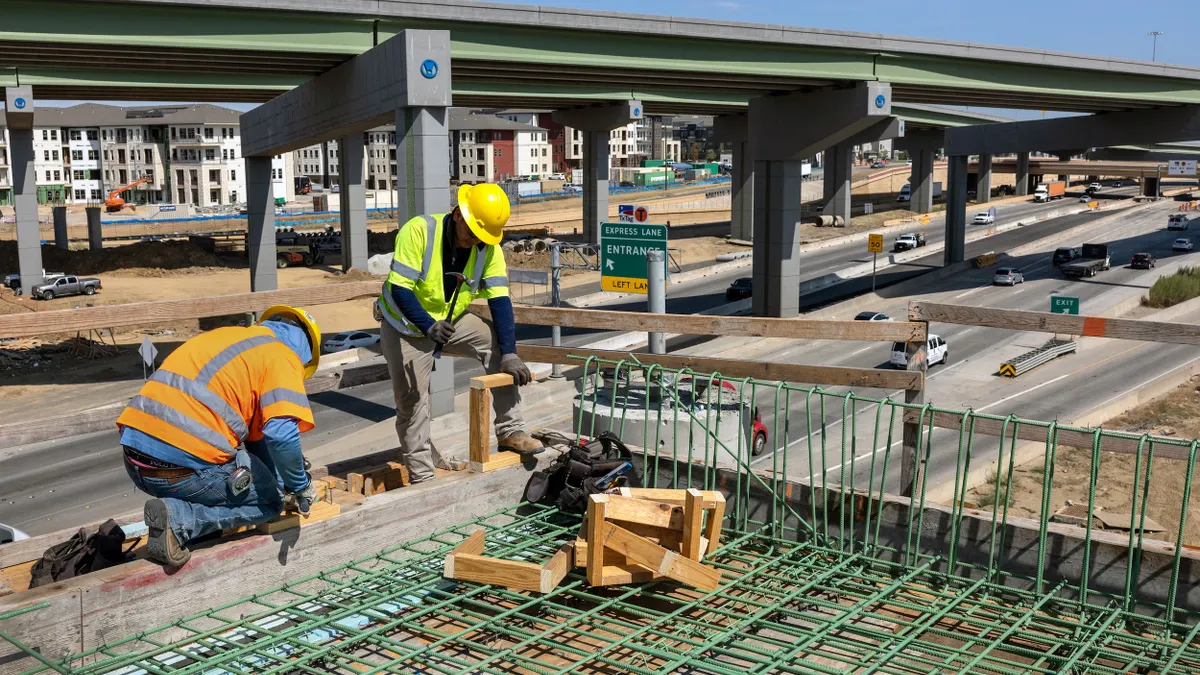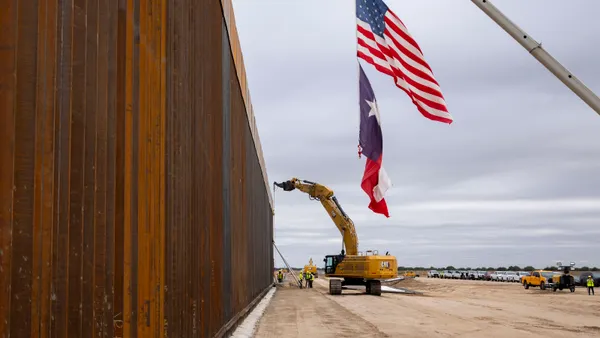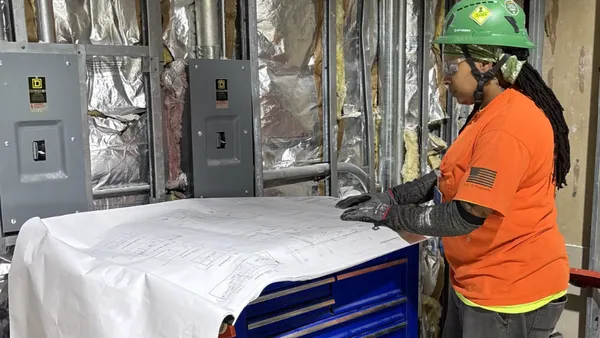This article is part of our six-part series of interviews with women leaders in construction for Women in Construction Week 2017. Read the others here.
Danielle Dy Buncio was already a part of the construction industry by age three, when her parents started a construction company together in Chicago. While they were constructing a hydroelectric power plant in the area, Dy Buncio was building a much smaller one for her school science fair project.
Eventually going on to get her bachelor's degree in civil engineering from Stanford University, Dy Buncio later worked for construction companies in California’s Silicon Valley and Sydney, Australia, before going back to her roots in Chicago and earning her MBA at Northwestern University's Kellogg School of Management. Dy Buncio would later start her own firm, VIATechnik, a national virtual design and construction firm, after becoming frustrated by the industry’s slow pace of technology adoption.
Since founding VIATechnik, Dy Buncio and the company have worked on projects such as Apple Park (Apple Campus 2), in Cupertino, Calif., and the Tesla Gigafactory outside Reno, Nev. In 2016, Dy Buncio was named a woman to watch in virtual reality by Girls in Tech.
Construction Dive spoke with Dy Buncio about her work as an engineer, the importance of diversity in construction and how recruiting girls from a young age could benefit the industry.
Editor's note: This interview has been edited and condensed.
What brought you from a more traditional side of the construction industry into working with construction-minded technology?
DY BUNCIO: In school I focused more on structural engineering because my passion was more in construction. I liked the idea of working on something you could physically see. After graduating, I moved back to Chicago to work in family business and in 2010 I started at Northwestern. I thought about going back into the family business but realized my passion was more in entrepreneurship on the tech side of construction. I founded VIATechnik in 2012 with my husband and we focused on bringing tech to design and construction companies with a goal of improving productivity on the job.
How did your background and identity shape that experience for you?
DY BUNCIO: What I’ve noticed, talking to female friends in the industry, is having someone to look up to makes a huge difference. If you have someone to look up to, as a man, you almost always have someone in a mentor position who looks like you. For women in this industry, that person probably doesn’t look like you, so it’s harder to look up to them. With my mom, I had a great role model, which allowed me to grow up in an environment where I saw what it was like and really helped me visualize that role.
What are some of the challenges women in your field face that men do not?
DY BUNCIO: One big thing is that there are still, in some ways, biases. If people walk into a room, they don’t necessarily assume I’m a president and CEO of the company, they might have thought I was in an administrative or sales role or something like that. I still get looks of surprise or even awe when I walk into a room, and I still get that look when people find out I’m in construction. There is still this bias and this assumption that I’m probably not an engineer.
At the same time, I think being a woman in some ways has helped me. If I go to a conference and it’s 90% men, they’ll probably remember me because I stand out in this crowd as one of a handful of women. In this situation, it’s important you come across well and are remembered for the right reasons.
As you’re moving up in your career, there aren’t as many strong female role models, so it’s hard for people early in their career as a woman or a minority to find someone to look up to. To combat that, things like giving a voice to women in the industry is important. It’s almost like we need to augment that voice so people know we exist. I think people know we’re shaping what’s happening in this industry in a good way. I think men, too, actually play more of a role than they realize. If 9% of this industry is women who are advocating for other women, that’s very small compared to the 90% of men who could be advocating. We need to get the majority advocating for women, too.
How do you think diversity shapes the workforce, and how has having a diverse team affected your own business?
DY BUNCIO: Diversity is a great thing for personal reasons, but for business reasons, too, diverse businesses are the best-performing. It’s all about giving different ideas — if everyone has the same ideas, there’s no one tackling them from different angles and that can make business stagnant. Whether that diversity is male or female, or of ethnic or professional backgrounds, it’s important to get people with different views on the table.
We have about 40% women in our company, which is completely different from the makeup of any other company in our industry. I think it gives us a huge competitive edge.
It’s kind of been shown that based on the name on your resume, sometimes people don’t even get to the interview stage in hiring. Creating a culture where we’re open to representation of all people and fostering that by trying to choose the best candidate, and finding people that complement our team — the idea of diversity has made that easy.
What would you say is one of the biggest challenges to working toward gender parity in tech and construction?
DY BUNCIO: One big challenge is getting the people in the door. We’re starting to get women to pursue engineering or construction management degrees, but you can’t hire 50% women if half your applicants aren’t women. There just aren’t enough applicants coming into that funnel.
We have to start getting girls, high school students interested in engineering and people in college on that track. This is a problem people really need to start to pay attention to — with the labor shortage, of course, there’s a problem if half the potential candidates in the world aren’t even thinking about this career. A lot of women I’ve talked to in the field had a strong female role model and that’s how they saw it was possible.
From an early age, little things like [building-minded games] GoldieBlox and Roominate are good stepping stones. More than that, instead of just talking to girls the way we traditionally do, we can talk about space and math and all those things little boys get talked to about all the time. The point is changing the conversation with our little girls.
As a mom of two young boys, it's pretty cool that they have a mom in construction to look up to. Whether you're a mom of little girls or boys, inspiring them to look up to you — to see that women and men can do awesome things — is all about inspiring that next generation to do the best they can.
In your career, how have you worked toward fighting gender inequity for yourself and other women?
DY BUNCIO: One thing I do is when I notice a rude comment or gender-biased comment I don’t laugh it off. I notice a lot of women will giggle, but when I stopped doing that I noticed that the comments happened a lot less because it made them realize, “Hey, this isn’t funny.” You have to make sure that they realize it’s not an okay comment.
Still, it’s hard to navigate between expressing when comments aren’t okay but trying not to damage a relationship with a client. You can’t let it slide, but you can’t be rude back. It’s so crazy that has to happen.
What advice do you have for women in the industry?
DY BUNCIO: When I started seeing the fact that being a woman in the industry was a competitive advantage, that helped my career. If we can stand up and do great things and make sure we’re remembered for what we want to be remembered for, that’s really powerful. Other women should start realizing it’s a competitive advantage. Mentorship, talking about role models and urging other women to realize that competitive advantage are great ways to help women in the industry.












